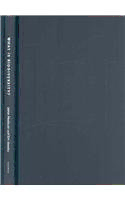
What is biodiversity? PDF
231 Pages·2008·1.3 MB·English
Most books are stored in the elastic cloud where traffic is expensive. For this reason, we have a limit on daily download.
Preview What is biodiversity?
Description:
In the life sciences, there is wide-ranging debate about biodiversity. While nearly everyone is in favor of biodiversity and its conservation, methods for its assessment vary enormously. So what exactly is biodiversity? Most theoretical work on the subject assumes it has something to do with species richness—with the number of species in a particular region—but in reality, it is much more than that. Arguing that we cannot make rational decisions about what it is to be protected without knowing what biodiversity is, James Maclaurin and Kim Sterelny offer in What Is Biodiversity? a theoretical and conceptual exploration of the biological world and how diversity is valued. Here, Maclaurin and Sterelny explore not only the origins of the concept of biodiversity, but also how that concept has been shaped by ecology and more recently by conservation biology. They explain the different types of biodiversity important in evolutionary theory, developmental biology, ecology, morphology and taxonomy and conclude that biological heritage is rich in not just one biodiversity but many. Maclaurin and Sterelny also explore the case for the conservation of these biodiversities using option value theory, a tool borrowed from economics. An erudite, provocative, timely, and creative attempt to answer a fundamental question, What Is Biodiversity? will become a foundational text in the life sciences and studies thereof.
See more
The list of books you might like
Most books are stored in the elastic cloud where traffic is expensive. For this reason, we have a limit on daily download.
